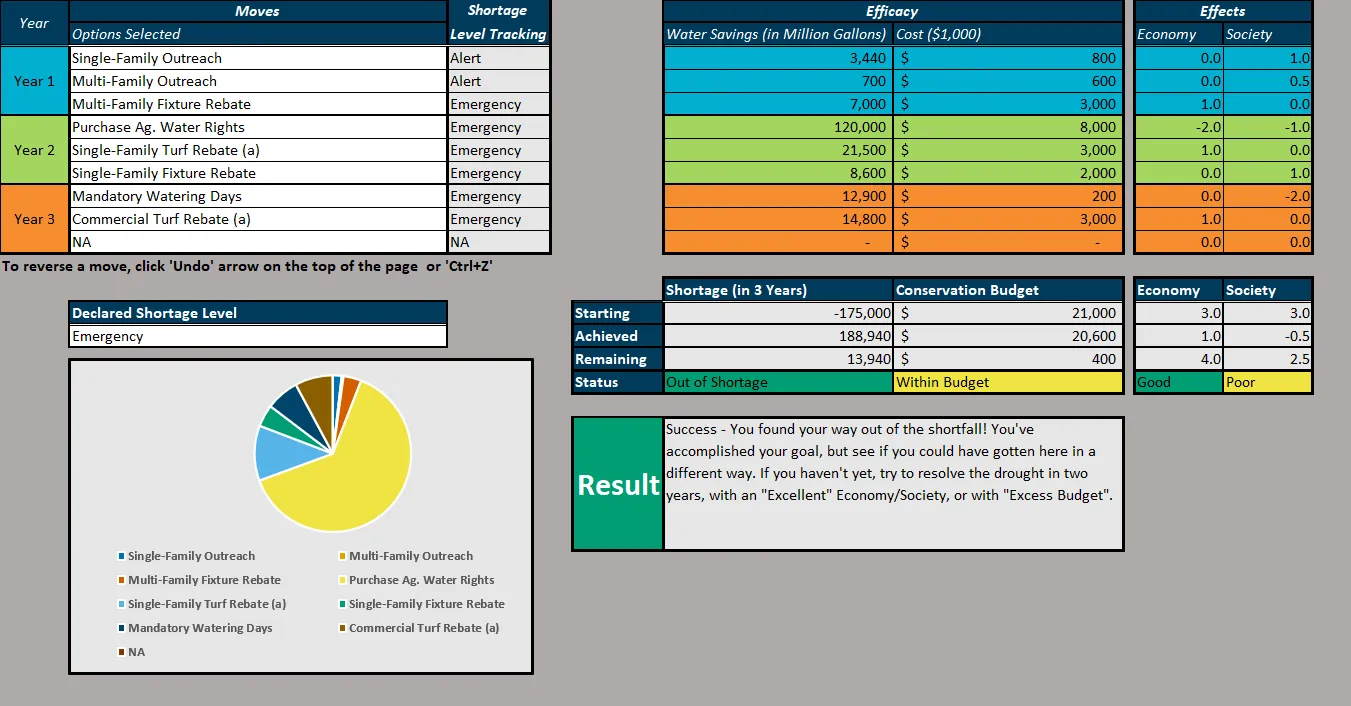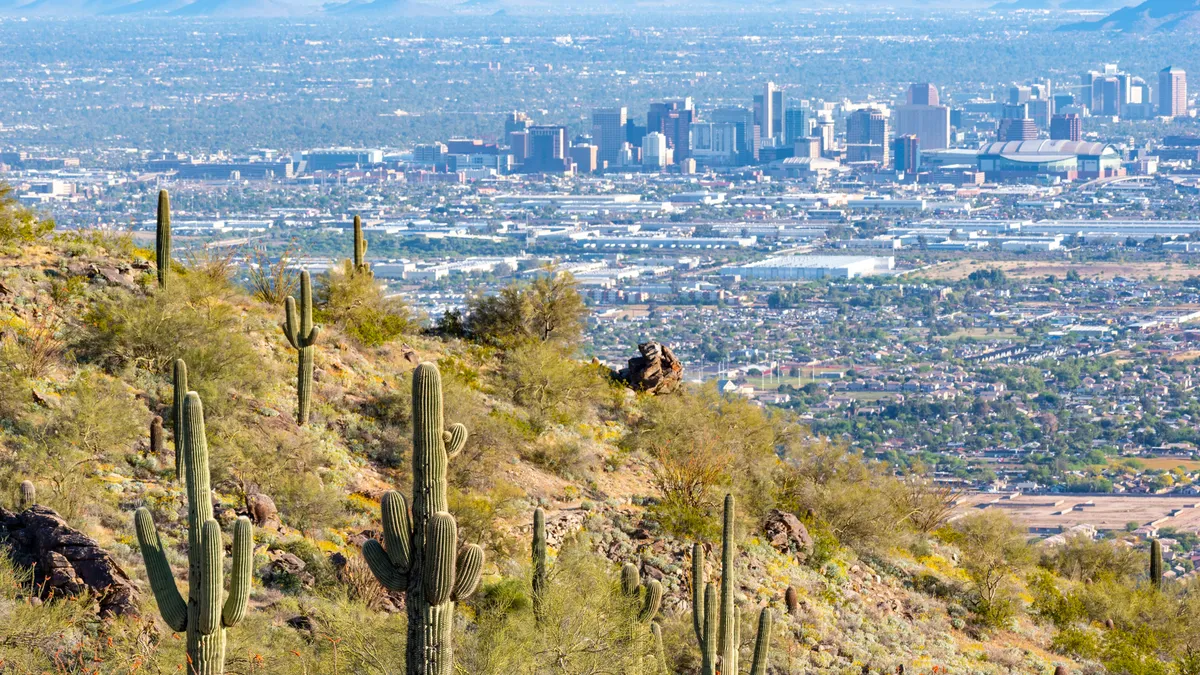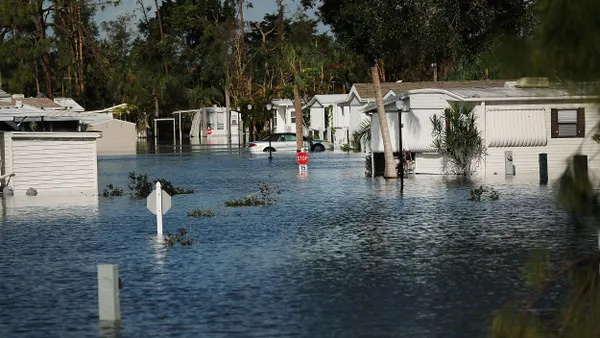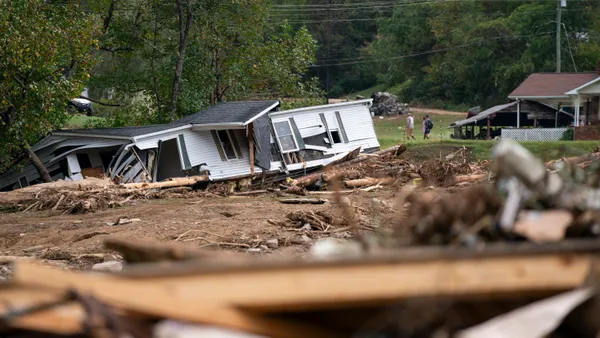Anyone can be a water resources manager in Phoenix, where the community is coping with a drought that has stretched on since the turn of the century. At least that’s the premise of a new role-playing game created by water resource specialists on the Phoenix Water Services Department’s conservation team.
Winning the game, which is geared toward high school students, requires players to get out of a water shortage within three years — without going over budget or causing too many negative economic or social impacts. Each year, a player gets to select three water management decisions to implement. The game is built in Microsoft Excel, and the user interface is basic: With each decision, values in the spreadsheet update to show players the resulting cost, amount of water conserved, and impacts on their society and economy scores — measures of public opinion and the local economy’s health, respectively.
Conducting outreach to commercial operations, for example, comes with slight water savings and marginally increases a player’s society score, explained game co-creator and water resource specialist Elijah Tangenberg. On the other end of the spectrum, a hard ban on agriculture may save more water but can result in an economic and societal failure. Tangenberg read aloud a message portrayed in one of the losing scenarios that says “Your program choices created so much social turmoil that you were forced to leave your position by elected officials. As you leave City Hall with your things, you see people outside protesting against your policies. Try again to see what you could have done differently.”

Water management is a pressing and sometimes controversial issue in Phoenix as the city sprawls out and the Colorado River shrinks. Colorado River water makes up 40% of Phoenix’s water supply, according to Yale Environment 360, although the city says its water supply is in very good shape due to decades of wise planning.
Many combinations of decisions in the game can lead to win scenarios, Tangenberg said. However, each winning condition looks a little different, from the amount of water conserved to the economic and social scores.
“There's a lot of trade-offs [in water management],” game co-creator and Phoenix water resource specialist Ginny Svec said. “We don't want to just think about, like, how do you save the most water? But what are these other concepts that we need to balance?” Svec, a former educator, and Tangenberg hope the drought simulation, which is in the beta testing phase, will help students make more sustainable personal choices and perhaps even encourage them to pursue careers in the water industry. The game is part of a set of premade, water resource-related lessons and activities that their team is developing for educators.
No exact science was used to determine the values associated with economic and social impacts, Tangenberg explained. “We discussed them internally among the team here and just said ‘Is this appropriate based off of the scale that we have?’” he said. “But when it came down to it, it was more about making sure that the points felt accurate to the player.”
Teachers can even edit the values depending on their classroom goals. “There's no fancy programming inside the tool,” Tangenberg said. “It's meant to be very tweakable for teachers and educators who are wanting to … come up with different versions.”











